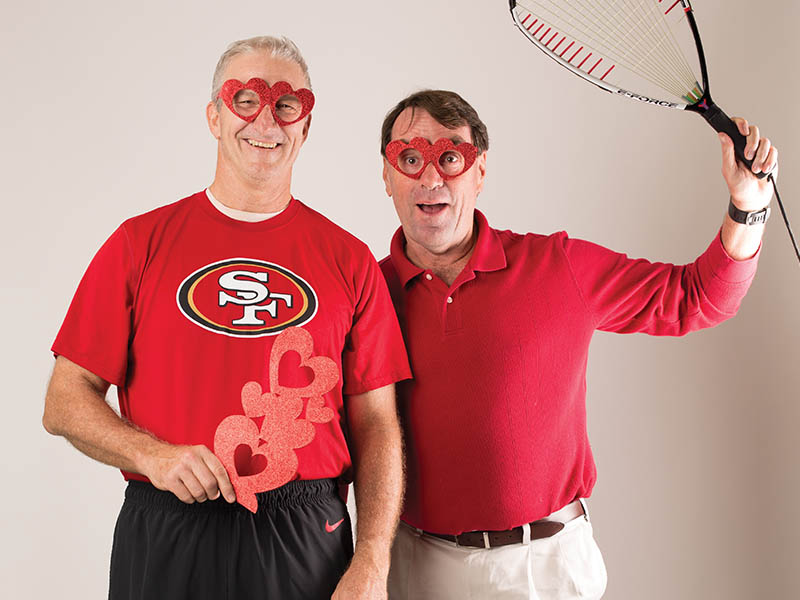Three years ago, Mike Otto of Williamsburg had just finished a workout at James City County Recreation Center when he went into cardiac arrest. Otto would have died if it were not for the use of an automated external defibrillator (AED) that saved his life.
“What is really scary is that I didn’t have any of the signs, or know I had anything wrong with me,” says Otto. He later learned he suffered from heart arrhythmia, which led to the heart attack at age 55.
That day, Otto and some friends were playing handball at the rec center. Otto stood up to compliment a play from another player when he recalls feeling dizzy and hitting the floor. He doesn’t remember much else. His handball partner, Bob Tubbs, screamed for help from the front desk, and workers rushed to Otto’s side with the AED. An AED sends an electric shock to the heart to restore normal heart rhythms.
“It did its thing, and brought me back to life,” says Otto.
The incident prompted Tubbs to start Heart Safe Williamsburg. Still in its infancy, Heart Safe Williamsburg aims to educate and advocate for the proper training and usage of AEDs as well as CPR and first aid in order to save lives. Numerous communities in several states as well as a few other countries have the program, which first started back in 2002 in Massachusetts through American Heart Association.
In addition to what happened to Otto, Tubbs felt compelled to start a local program because his mother, brother, and three siblings also had heart attacks.
“It’s got my attention,” Tubbs says.
Otto agrees. “What happened to me changed my way of thinking. He’s always been active, but since his cardiac arrest, he’s altered his diet as well, and feels “fantastic.”
Meanwhile, now that he is retired, Tubbs is focused on promoting and growing Heart Safe Williamsburg. Currently, he is taking stock of just how many local businesses and public buildings have AEDs. He hopes to secure funding through grants and encourage more businesses, restaurants, schools, churches, and other places that frequently have public visitors to purchase an AED. Funding is also needed to properly train individuals in the use of AEDs.
Heart disease and stroke are the number one causes of death in Virginia, and Tubbs hopes through Heart Safe Williamsburg he can strengthen the American Heart Association’s “chain of survival” by providing quicker access to emergency care, including CPR and the use of defibrillation as well as advanced and post-cardiac arrest care.
His ultimate goal is to develop a phone app in which anyone who needs assistance can easily locate the closest AED.
“When it is needed, it is a life saver,” Tubbs says. “If we can save just one life as a result of this and prevent one family from losing a family member, then we’ve accomplished what we needed.”
Learn more about Heart Safe Williamsburg: https://animoto.com/play/SxNmZdb8gxmjZQU9w7ttpQ



